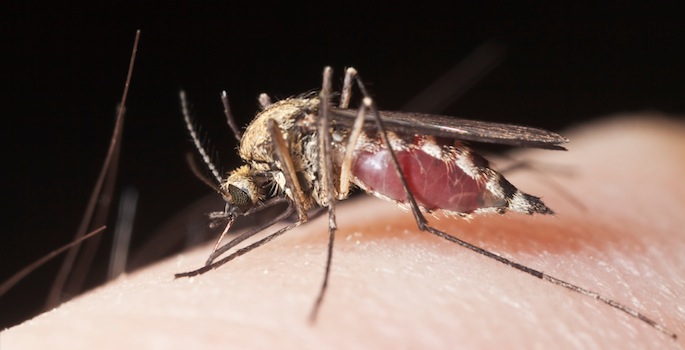Featured Research
-

Study reveals effects of different teaching styles on learning new words
A new study on novel word learning uncovered clues on reading and plasticity in the brain that could determine interventions for children who struggle with reading. Read MoreApr 4, 2012
-

Higher-spending hospitals have fewer deaths for emergency patients
Higher-spending hospitals have better outcomes for their emergency patients, including fewer deaths, according to a Vanderbilt study released as a working paper through the National Bureau of Economic Research. Read MoreApr 3, 2012
-

TRIAD director on new CDC findings for autism prevalence
Zachary Warren, director of the Vanderbilt Kennedy Center’s Treatment and Research Institute for Autism Spectrum Disorders at Vanderbilt University, says effective early identification and treatment of autism is a public health emergency. Read MoreMar 29, 2012
-

Vanderbilt cancer investigators win two national GE cancer research grants
Vanderbilt-Ingram Cancer Center investigators have won two of the five global innovation grants awarded by the “GE Healthymagination Cancer Challenge.” Read MoreMar 28, 2012
-

Vanderbilt uses first FDA-approved stent for heart patients with diabetes
Vanderbilt Heart recently used a newly approved medical device to open narrowed coronary arteries, even in heart disease patients who also have diabetes. Read MoreMar 28, 2012
-

MSNBC Video: The science behind political thinking
Jonathan Metzl, director of the Center for Medicine, Health and Society, explains the science behind how the brain weighs decisions and forms political beliefs on the "Melissa Harris-Perry" show. Read MoreMar 26, 2012
-

Risk of secondary tumors from melanoma drug studied
A new study offers clues on why melanoma patients who are treated with oral drugs inhibiting the BRAF gene are at increased risk for developing secondary skin cancers. Read MoreMar 23, 2012
-

Mouse model for autism yields clues to a 50-year-old mystery
A genetic variation that causes early disruptions in serotonin signaling in the brain may contribute to autism spectrum disorder and other enduring effects on behavior. Read MoreMar 20, 2012
-

Educational trajectories of English Language Learners examined
Students who successfully complete English as a Second Language or bilingual language learning programs within three years fare better academically across the board than peers who stay in such programs for a longer time. Read MoreMar 15, 2012
-

Personal and professional benefits of Girl Scouts affirmed
Being a Girl Scout has a long-term positive impact on girls' leadership skills and development, a new Peabody College study finds. Read MoreMar 14, 2012
-

Barrier to faster graphene devices identified and suppressed
Vanderbilt physicists report that they have nailed down the source of the interference inhibiting the rapid flow of electrons through graphene-based devices and found a way to suppress it. Read MoreMar 13, 2012
-

Vanderbilt expanding research enterprise into Williamson County
With the addition of a new 18,000-square-foot laboratory to be located within the Cool Springs Life Sciences Center, Vanderbilt University is expanding its research enterprise into Williamson County. Read MoreMar 9, 2012
-

Shyness study examines how brain adapts to stimuli
Shyness may be caused by deficits in the brain. Read MoreMar 9, 2012
-

Ultrafast sonograms shed new light on rapid phase transitions
A method for taking ultrafast "sonograms" of materials undergoing phase transitions sheds new light on the dynamics of this important phenomenon in the world’s fastest phase-change material. Read MoreMar 7, 2012
-

Science Nation: New mosquito repellant could be frightening…for mosquitoes
http://www.nsf.gov/news/special_reports/science_nation/nosingoutmosquitoes.jsp Read MoreMar 6, 2012
-

Americas Quarterly: The effect of skin color in the Americas
Because racial identification is much more fluid in Latin America and the Caribbean than it is in the United States, researchers with Vanderbilt’s Latin American Public Opinion Project used actual skin color rather than racial identity to examine the effect of ethnicity on equality issues like class and educational attainment. Read MoreMar 6, 2012
-

App turns tablet into math aid for visually impaired students
A mechanical engineering graduate student has created an app that turns Android tablets into an educational aid for teaching mathematics to visually impaired students. Read MoreMar 5, 2012
-

Early study hints at ‘brown fat’ as potential diabetes treatment
A new study finds long-lasting reversal of diabetes is possible without insulin through transplantation of brown fat tissue. Read MoreMar 2, 2012
-

‘Toolkit’ makes bedtime less stressful for children with autism
A new resource developed by the Vanderbilt Kennedy Center could improve sleep for children with autism. Read MoreFeb 27, 2012
-

Vanderbilt Poll: Santorum leading Republican candidate in Tennessee
Rick Santorum is the favored candidate in Tennessee as the state approaches its Super Tuesday primary election March 6, according to a new poll from the Center for the Study of Democratic Institutions at Vanderbilt University. Read MoreFeb 26, 2012